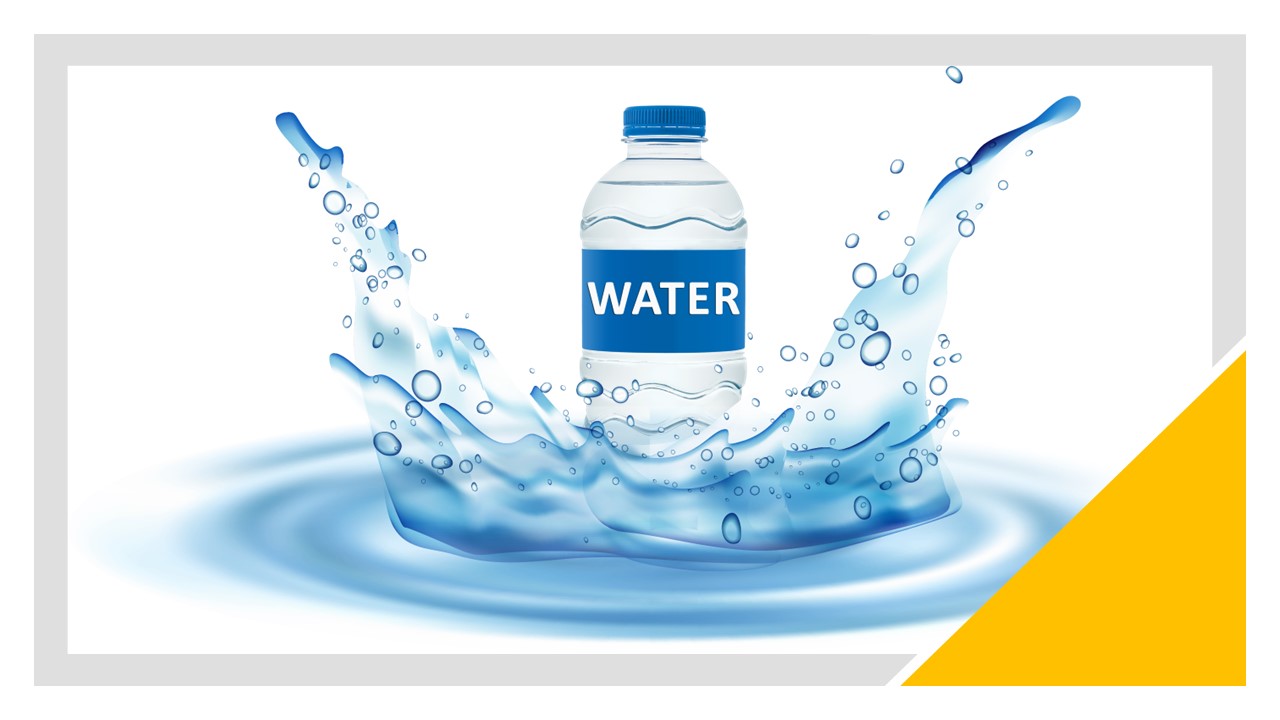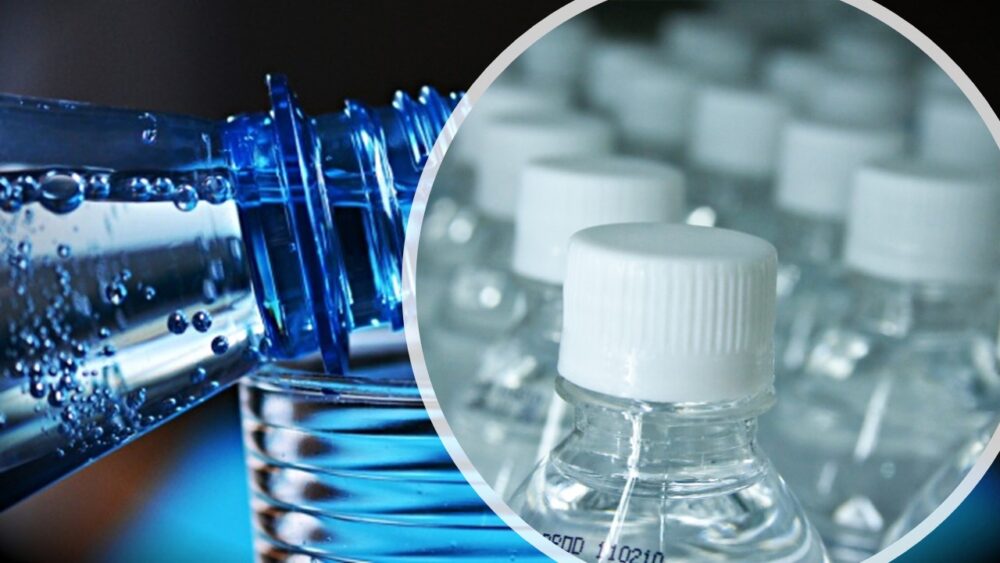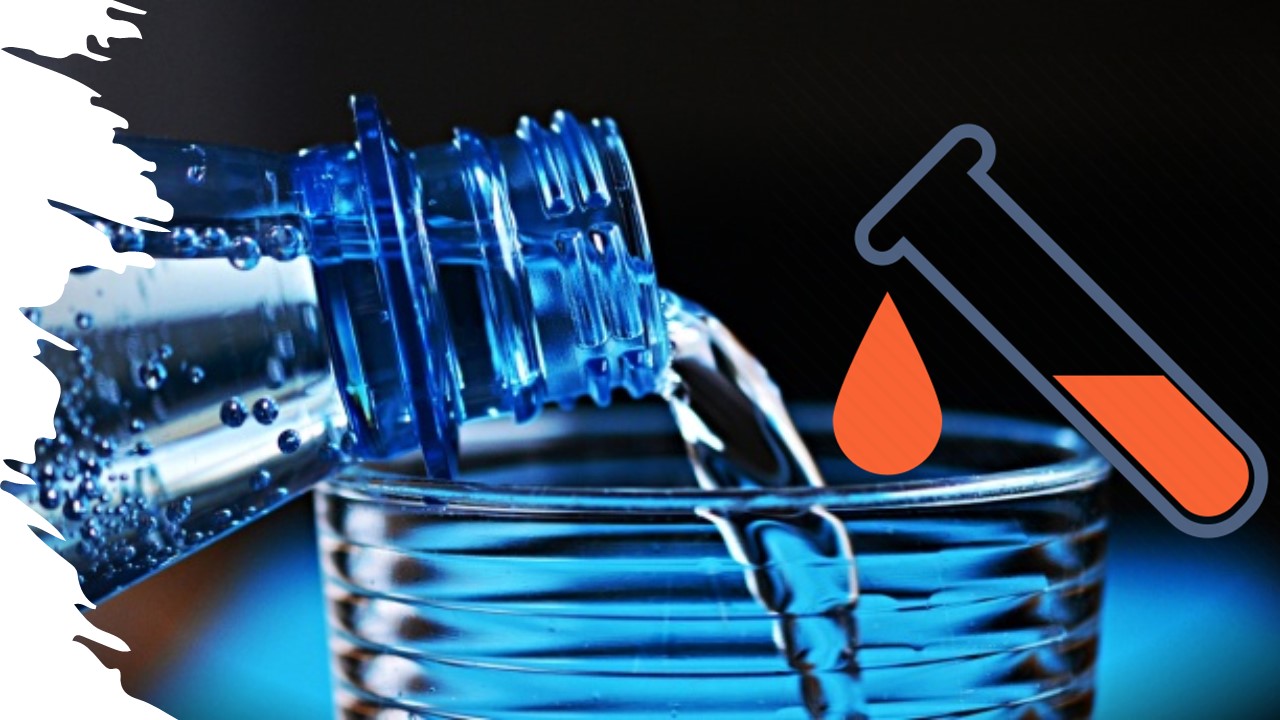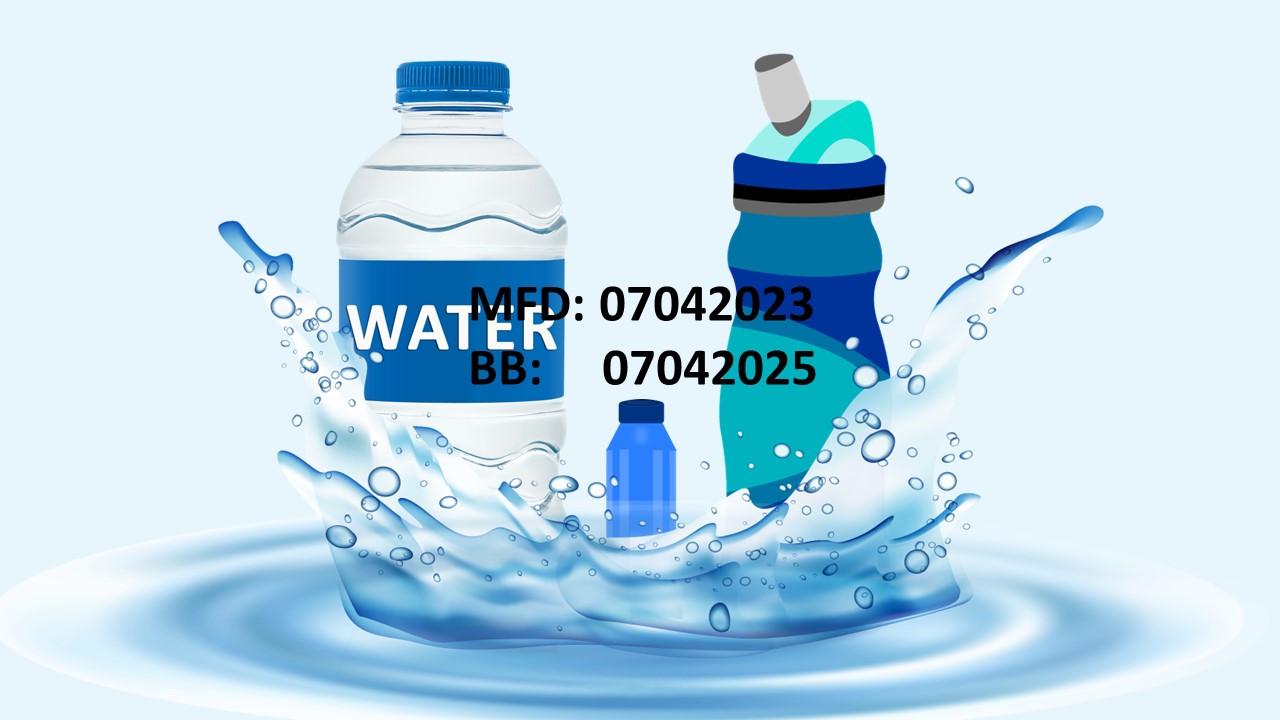Why Does My Bottled Water Taste Weird?
If you have ever picked up a bottle of water and thought to yourself “Why does my bottled water taste weird?” then you are not alone. In fact, this is a question that I get asked a lot. Water tasting weird can be caused by a lot of things. So, the weird taste depends on the flavor you are tasting.
The truth is, there are a number of reasons why your bottled water might taste strange. It could be anything from the water source to the way the water is treated and bottled. Furthermore, water can absorb and represent the flavors of the substances it contacts.
In this article, we will explore some of the most common reasons why your bottled water might taste weird – and what you can do about it. So, why does my bottled water taste weird? Read on.
Why Does Bottled Water Taste Weird?
While water companies take great measures to make clean, odorless and tasteless water, some bottled water can still taste and smell weird. There are many reasons why your bottled water tastes weird and here are a few of them:
- The source of the water
- The way the water is bottled
- The water has absorbed the flavors of substances it contacted
- The bottle is dirty
- High concentration of calcium or iron
- Temperature change or pressure fluctuation
- Water is sitting in the bottle for too long
So, let me explain each reason:
1. The Source Of The Water
Ever wondered why bottled water tastes weird? It’s because of the water source. Most bottled water comes from municipal water sources, which means it’s been treated with chlorine. This can give the water a strange taste that many people don’t enjoy.
If your water comes from municipal water, municipal usually increases the amount of chlorine used to purify water during the springtime to purify the water and the odor and taste of chlorine may not be pleasant for you.
Filtered water is a better-tasting water alternative to bottled water, so you can try it. Filtered water tastes great, fresh and crisp because it’s been filtered to remove impurities and it doesn’t have the strange chlorine taste.
2. The Way The Water Is Bottled
The water in bottles often has a weird taste because of the way it is bottled. The water may have been exposed to air before it is bottled, which can cause it to pick up impurities from the air. Also, plastic can leach chemicals into the water, causing it to taste weird.
3. The Water Has Absorbed The Flavors Of Substances It Came In Contact With
If you have ever noticed that bottled water sometimes tastes weird, it may be because the water has absorbed the flavors of substances it came in contact with. For example, if you leave a bottle of water in your refrigerator with other items, the water
So, next time you’re wondering why your bottled water tastes strange, remember that it’s probably because it’s absorbed the flavors of the substances it came in contact with. And if you want to avoid this, be sure to store your bottled water in a clean, safe place.
4. The Bottle Is Dirty
Have you ever tasted bottled water that tasted off? It’s probably because the bottle was dirty. Bottled water companies go to great lengths to purify their water, but if the bottle is reused when it is dirty, that water can become contaminated.
If you’re worried about contaminated water, the best thing to do is to clean your bottle before you fill it. You can clean it with soap and water or, if you’re really worried, with a vinegar solution.
In any case, if you’re ever worried about the quality of your bottled water, give it a quick smell or taste before you drink it. If it doesn’t taste right, dump it out and get a new bottle.
5. High Concentration Of Calcium Or Iron
When water has high levels of these minerals, it can give water a metallic taste. Another possibility is that the water has been sitting in the bottle for a long time and has picked up a plastic taste from the bottle.
If you’re ever in doubt, it’s always best to err on the side of caution and throw out the water. But next time you take a sip of water and something doesn’t seem right, there’s a good chance you can blame it on the way the water is bottled or stored.
6. Temperature Change Or Pressure Fluctuation
When water is bottled, it is sealed under pressure. If there’s a sudden change in pressure, it can cause the water to change the taste. This is because the change in pressure affects the way the water interacts with the air inside the bottle.
Temperature changes can also cause the water to taste different. If the water gets too cold, it can taste bland. On the other hand, if it gets too hot, it can taste bitter.
7. The Water Is Sitting In The Bottle For Too Long
We all know that water does not go bad, except if something strange happened to it. But have you ever noticed that water that’s been sitting in a bottle for a while can taste a little off? That’s because the water is sitting in the bottle for too long.
When water sits in a bottle for a while, it can start to absorb the flavors of the bottle. This is why you might notice a plastic-y taste in your water after it’s been sitting in a hot car all day. The water is still safe to drink, but it might not taste as fresh as it did when you first bottled it.
If you’re looking for the freshest-tasting water, be sure to drink it within a few days of bottling. After that, it’s still safe to drink, but the taste might not be as great.
Water Taste Improvement Tips
Here are some water taste improvement tips that you can include in your content:
- Lemon Zest: Add a twist of fresh lemon zest or a slice of lemon to your bottled water for a refreshing citrusy flavor. Lemon not only enhances the taste but also provides a dose of vitamin C.
- Cucumber Coolness: Cucumber slices can transform your water into a cool and mild-tasting drink. It’s a great choice for those who prefer a subtle, refreshing flavor.
- Minty Freshness: A few fresh mint leaves can make your water taste crisp and invigorating. Mint is known for its natural cooling sensation and pleasant aroma.
- Berries Burst: Drop some berries like strawberries, raspberries, or blueberries into your water. They’ll infuse it with a subtle fruity sweetness and a pop of color.
- Cinnamon Spice: A cinnamon stick can add a warm, comforting note to your water. It’s a unique twist that’s both delicious and aromatic.
- Water Enhancers: Explore the wide variety of water enhancers available in the market. These convenient liquid or powder additives come in various flavors, allowing you to customize your water to your taste preferences.
- Herbal Infusions: Experiment with herbal infusions like chamomile, lavender, or hibiscus. These herbs can impart a soothing and floral flavor to your water.
- Coconut Water: Mix a bit of coconut water with your bottled water for a tropical twist. It not only enhances the taste but also provides electrolytes and hydration.
- Electrolyte Drops: Consider using electrolyte drops, especially if you’re looking to rehydrate after exercise. They can improve both the taste and the electrolyte balance of your water.
- Fruit Ice Cubes: Freeze small fruit pieces in ice cube trays and use them to chill your water. As they melt, they’ll release their flavor gradually.
Remember that taste is subjective, so feel free to experiment and find the flavor combinations that you enjoy the most. These tips can make drinking water a more enjoyable and flavorful experience while keeping you well-hydrated.
What To Do If Bottled Water Tastes Weird?
If your bottled water tastes weird, there are several steps you can take to address the issue and potentially improve the taste. Here’s what to do:
- Check the expiration date. If the water is expired, it may have lost its freshness and taste.
- Check the storage conditions. Bottled water should be stored in a cool, dark place. If it has been exposed to sunlight or heat, it may have developed a weird taste.
- Try a different brand. Different brands of bottled water have different tastes. If you don’t like the taste of one brand, try another one.
- Filter the water. A water filter can remove impurities that can cause the water to taste weird.
- Add a flavor enhancer. There are many different flavor enhancers available that can make your bottled water taste better.
- Replace the water. If you’ve tried all of the above and the water still tastes weird, it’s best to replace it.
- Contact the Manufacturer. If you believe there is a quality issue with the bottled water, contact the manufacturer or the customer service department of the brand. They may be able to provide guidance or investigate the issue.
- Consider Tap Water. If you consistently find that bottled water tastes weird and you’re concerned about the taste or quality, consider switching to tap water. In many areas, tap water is safe to drink and can be further filtered if desired.
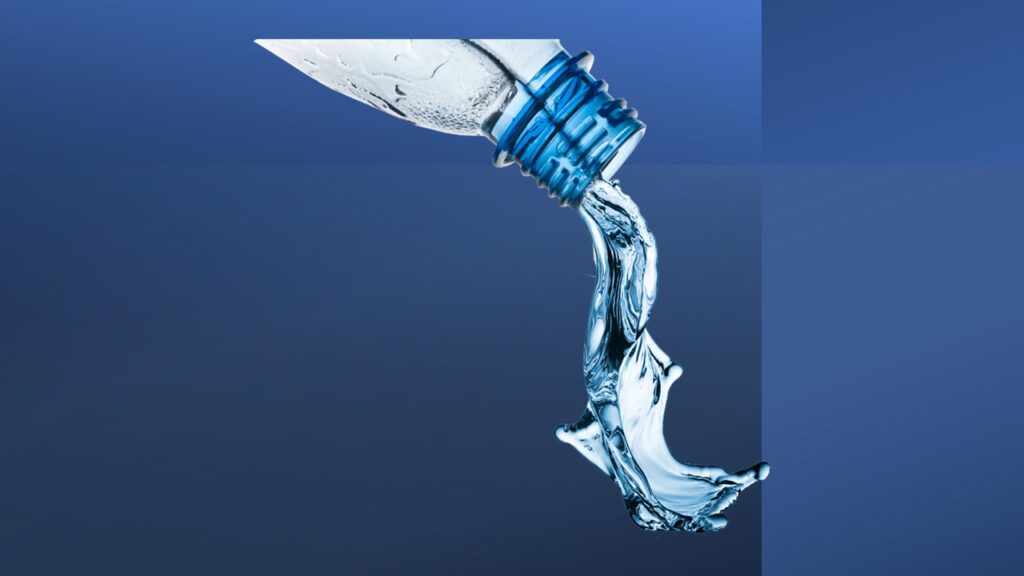
How To Get Rid Of Weird Taste In Water Bottles
If you are experiencing a weird taste in your water bottle, here are some ways to get rid of it:
1. Clean Your Water Bottle
If you have not cleaned your water bottle in a while, it may be the source of the strange taste. Wash your bottle with soap and water or run it through the dishwasher if it is dishwasher safe. Make sure to rinse it thoroughly and air dry it before refilling it with water.
2. Clean It With Vinegar And Baking Soda
Adding baking soda and white vinegar to the soapy water you use to clean your water bottle will help you get rid of all kinds of bad tastes or odors.
3. Use A Water Filter
If you are using tap water to fill your bottle, a water filter may help remove any impurities that are causing the strange taste. There are many different types of water filters available, such as pitcher filters, faucet filters, and under-sink filters.
4. Choose A Different Type Of Bottled Water
Different types of bottled water can have different tastes due to the mineral content and filtration process. If you are not happy with the taste of your current brand, try a different brand or type of water to see if it makes a difference.
5. Store Your Water Properly
The way you store your water can also affect its taste. Make sure to store your water bottle in a cool, dark place, away from direct sunlight and heat sources. You may also want to try storing your water in a glass container rather than a plastic one.
6. Add Flavorings
If you cannot get rid of the strange taste in your water, you may want to try adding flavorings to make it more palatable. You could add a slice of lemon, lime, or cucumber, or try adding a small amount of fruit juice or a flavored water enhancer.
What To Do If Your Bottled Water Taste Weird?
If your bottled water tastes weird or has an unusual flavor, it’s essential to take immediate action to ensure your health and enjoyment of the water. Here’s what you can do if you encounter weird-tasting bottled water:
- Stop Drinking It: If you notice a strange taste or odor in the water, stop drinking it immediately. Do not consume any more of the water until you determine the cause of the taste issue.
- Inspect the Bottle: Check the bottle for any visible signs of damage, leakage, or tampering. A damaged or compromised bottle may allow contaminants to enter the water, affecting its taste.
- Check the Expiration Date: Verify that the bottled water has not exceeded its expiration date. Expired water may have an altered taste or stale flavor.
- Examine the Water: Observe the appearance of the water. Fresh and safe water should be clear and free from any particles, cloudiness, or discoloration.
- Sniff the Water: Unscrew the cap and smell the water. Pure water should have no noticeable odor. If you detect any strange or unpleasant smells, it might indicate contamination.
- Taste Test: Take a small sip of the water and let it sit on your palate for a moment. Fresh and clean water should have a neutral taste. If you notice any unusual or off-flavors, the water may have quality issues.
- Compare with Other Bottles: If you have multiple bottles from the same batch or brand, taste and compare them. Consistency in taste across bottles can help determine if the issue is isolated or widespread.
- Verify the Source: Ensure that the bottled water is from a reputable and certified brand. Counterfeit or low-quality water may have taste and safety issues.
- Contact the Manufacturer: If you suspect a quality issue, contact the manufacturer or the brand’s customer service. Inform them about the weird taste and provide details such as the batch number and expiration date. They can provide insights or address any potential concerns.
- Dispose of Contaminated Water: If you are certain that the water is contaminated or has an unpleasant taste, do not use it for drinking or cooking. Dispose of it responsibly to prevent accidental consumption.
- Switch to Alternative Water: If you can’t resolve the taste issue with bottled water, switch to an alternative source of safe drinking water. Consider filtered tap water, water from a different brand, or water from a trusted water dispenser.
- Report the Issue: If you purchased the water from a retailer, consider reporting the issue to them, especially if you suspect a problem with a specific batch or lot.

How to Identify Water Quality Issues
Identifying water quality issues can help determine if the weird taste in bottled water is a result of any potential problems. Here are some guidelines to help readers identify water quality issues:
- Check the Expiration Date: Start by checking the expiration date on the bottle. Expired bottled water may have an altered taste or a flat, stale flavor.
- Inspect the Bottle: Examine the bottle for any signs of damage or leakage. A damaged bottle may allow contaminants to seep into the water, affecting its taste.
- Visual Inspection: Look closely at the water. It should appear clear and free from any particles, sediment, or cloudiness. Cloudy or murky water could indicate impurities.
- Odor Test: Unscrew the cap and take a whiff of the water. Fresh, pure water should have no discernible odor. If you detect any strange or unpleasant smells, it might be an indication of contamination.
- Taste Test: Take a small sip of the water and let it sit on your palate for a moment. Fresh, clean water should have a neutral taste. If you notice any unusual or off-flavors, the water may have quality issues.
- Compare with Other Bottles: If you have multiple bottles from the same batch or brand, taste and compare them. Consistency in taste across bottles is an indicator of water quality.
- Verify Brand Authenticity: Ensure that the bottled water is from a reputable and certified brand. Counterfeit or low-quality water may have taste and safety issues.
- Temperature Impact: Consider if temperature changes affected the water. Exposure to extreme heat or cold for extended periods may alter the taste.
- Store Properly: Make sure you store your bottled water away from direct sunlight and heat sources. Proper storage helps preserve the water’s taste and quality.
- Compare with Tap Water: If you have access to tap water, compare the taste of bottled water with tap water. Significant differences in taste may indicate issues with the bottled water.
- Read Reviews: Check online reviews and consumer feedback for the specific brand or batch of bottled water you have. If others have reported similar taste issues, it may be a quality problem.
- Contact the Manufacturer: If you suspect a quality issue, reach out to the manufacturer or the brand’s customer service for clarification. They can provide insights or address any potential concerns.
If you notice any consistent odd tastes, smells, or visual irregularities in your bottled water, it’s essential to refrain from drinking it. Discontinue use and dispose of the water properly.
Safety should always be a top priority, and if there are doubts about the water quality, it’s best to seek alternative sources or contact the manufacturer for guidance.
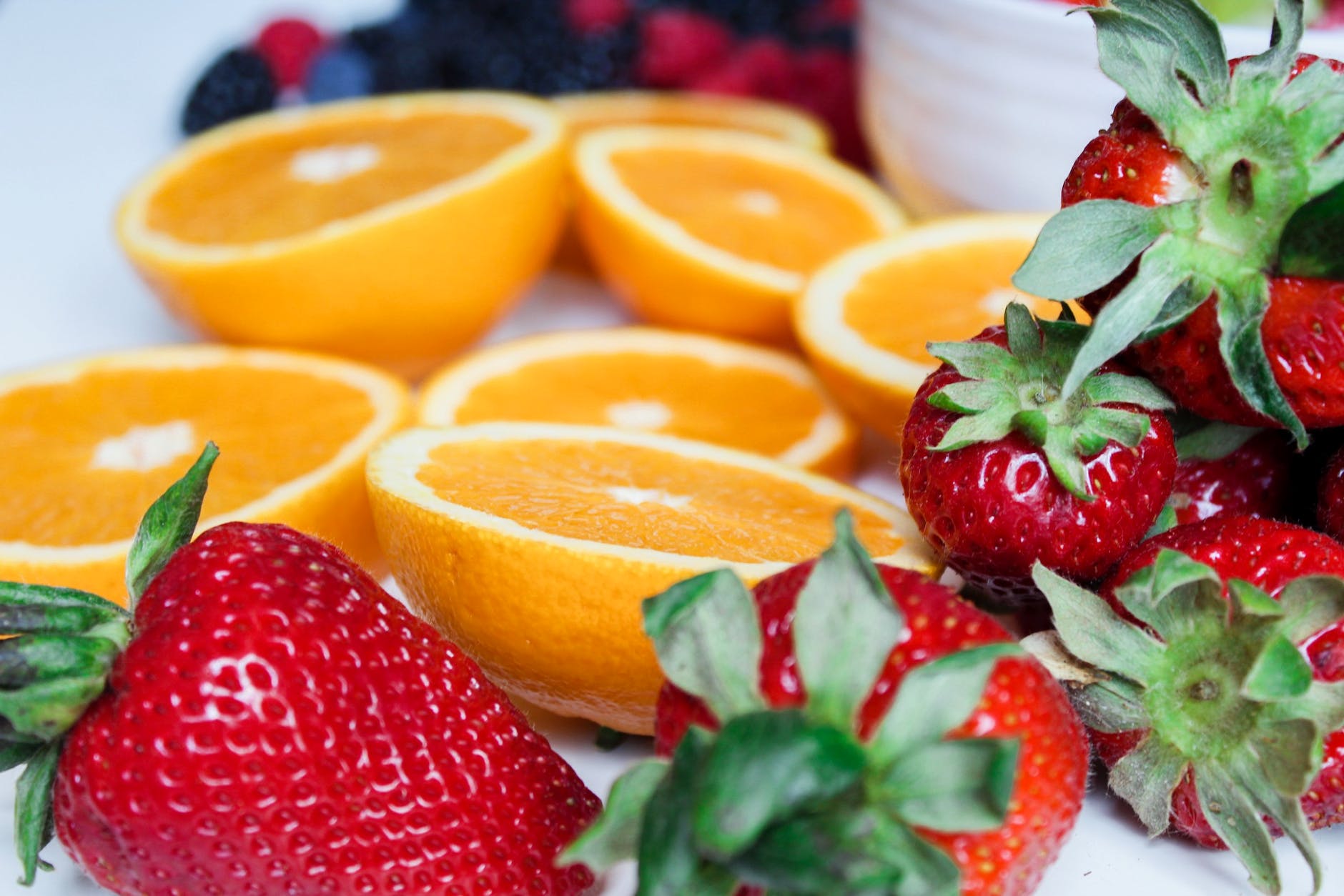
Tips For Improving Bottled Water Taste
Improving the taste of bottled water can enhance your drinking experience and encourage better hydration. Here are some practical tips and hacks to achieve a more enjoyable taste:
- Add Fresh Fruits: Enhance the flavor of your bottled water by adding slices of fresh fruits like lemon, lime, orange, cucumber, or berries. The natural essence of the fruits will infuse into the water, providing a refreshing and flavorful twist.
- Mint Leaves or Herbs: Drop a few mint leaves or herbs like basil, mint, or rosemary into your bottled water to impart a pleasant and aromatic taste. This can be especially refreshing on hot days.
- Cucumber and Mint Combo: Combine cucumber slices and mint leaves for a cool and soothing taste. This combination adds a touch of spa-like refreshment to your water.
- Citrus Zest: Grate or peel the zest of citrus fruits (lemon, lime, or orange) and add it to your bottled water. The zest contains natural oils that infuse the water with a burst of citrus flavor.
- Fruit Ice Cubes: Create fruit-infused ice cubes by freezing small fruit pieces in ice trays. Pop them into your bottled water for gradual flavor release as they melt.
- Chill the Water: Refrigerate your bottled water before consumption. Chilled water can taste crisper and more refreshing, especially on warm days.
- Invest in a Fruit Infuser Bottle: Purchase a water bottle with a built-in fruit infuser compartment. These bottles have a separate compartment where you can place fruits, herbs, or tea bags to infuse the water.
- Coconut Water Blend: Mix a small amount of coconut water with your bottled water for a hint of natural sweetness and added electrolytes.
- Use Filtered Water: If you find the taste of your tap water unpleasant, consider using a water filter to improve its taste before filling your reusable water bottle.
- Sparkling Water with a Splash: If you prefer carbonated water, choose sparkling bottled water and add a splash of fruit juice for a delightful, lightly flavored beverage.
- Stainless Steel or Glass Bottles: Opt for stainless steel or glass water bottles if you dislike the taste of plastic. These materials do not leach chemicals into the water, preserving its pure taste.
- Experiment with Tea Bags: Add herbal or fruit tea bags to your bottled water for a unique and refreshing infused taste. Experiment with different tea flavors to find your favorite combination.
Remember to clean your water bottle regularly to avoid any residue affecting the taste. With these tips, you can transform your bottled water into a personalized and delicious beverage, making hydration a more enjoyable part of your daily routine.
How To Choose The Right Bottled Water For Your Needs
Choosing the right bottled water can be a daunting task, as there are numerous options available. Here are some factors to consider when selecting the best bottled water for your needs:
- Source and Origin: Check the label to identify the water’s source and origin. Some brands use natural springs, while others use purified or filtered water. Understanding the source can give you an idea of the water’s mineral content and taste.
- Mineral Content: Bottled water can vary in its mineral content, which contributes to its taste. If you prefer water with a specific mineral profile, look for labels indicating the mineral content or taste descriptions provided by the brand.
- Purification Process: Consider the purification process used by the brand. Some companies use distillation, reverse osmosis, or other filtration methods to remove impurities and contaminants. Understanding the purification process can help ensure the water meets your quality standards.
- pH Level: Bottled water can have varying pH levels, which can affect its taste and potential health benefits. If you have specific preferences or health concerns related to pH, look for water with a suitable pH level.
- Packaging: Consider the packaging material and size of the bottled water. Plastic bottles are lightweight and convenient, but some people prefer glass bottles to avoid potential chemical leaching. Choose a size that suits your needs, whether it’s for on-the-go use or home consumption.
- Environmental Impact: Evaluate the brand’s commitment to sustainability and environmental responsibility. Some companies focus on eco-friendly packaging and participate in recycling programs to minimize their environmental impact.
- Certifications and Testing: Look for bottled water that undergoes regular testing and carries certifications from reputable organizations like NSF International or the International Bottled Water Association (IBWA). These certifications ensure that the water meets specific quality standards.
- Brand Reputation: Research the reputation and reviews of the bottled water brand. Consider customer feedback and ratings to get an idea of the water’s taste, quality, and reliability.
- Cost: Bottled water prices can vary significantly depending on the brand and type. Consider your budget and find a balance between quality and affordability.
- Preference for Sparkling or Still Water: Determine whether you prefer still (non-carbonated) or sparkling (carbonated) bottled water. Some brands offer both options, while others specialize in one type.
- Health Considerations: If you have specific health concerns or dietary preferences, check for water options tailored to your needs, such as mineral-rich water or water with added electrolytes.
- Availability: Ensure that the bottled water brand you choose is readily available in your area or accessible through online retailers.
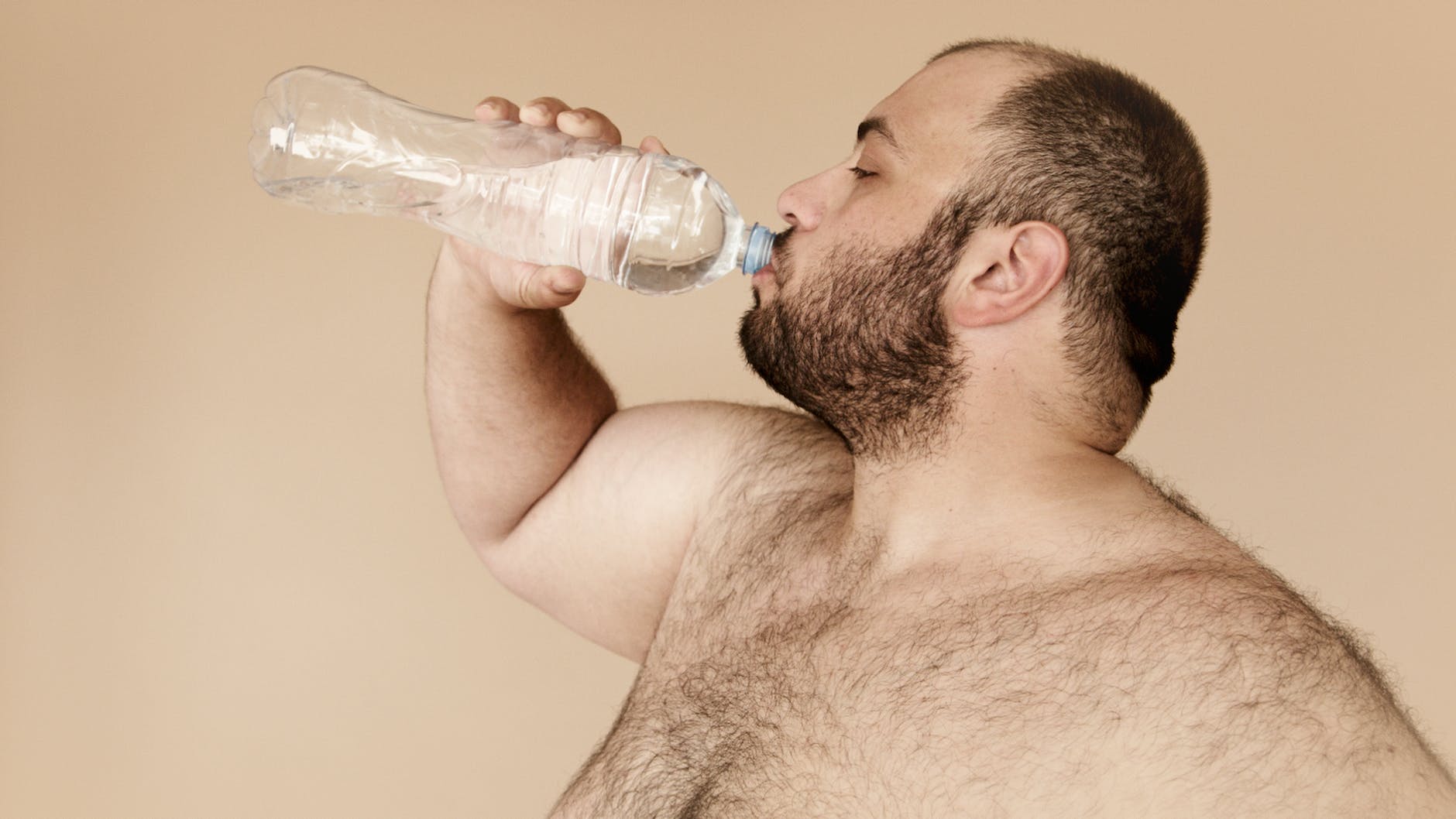
The Benefits Of Drinking Bottled Water
Drinking bottled water offers several benefits that can positively impact your health and daily life. Here are some of the key advantages:
1. Hydration On The Go
Bottled water provides a convenient and portable source of hydration. Whether you’re at work, in the gym, or traveling, having a bottle of water readily available makes it easy to stay hydrated throughout the day.
2. Improved Health
Drinking an adequate amount of water is essential for overall health. Bottled water allows you to maintain proper hydration, which supports various bodily functions, including digestion, circulation, and temperature regulation.
3. Mineral and Electrolyte Options
Some bottled water brands offer products that are rich in minerals or contain added electrolytes. These options can be beneficial, especially for athletes or individuals engaged in physically demanding activities, as they help replenish essential nutrients lost through sweating.
4. Quality and Purity
Reputable bottled water brands undergo strict purification processes and testing to ensure the water’s quality and safety. Bottled water is often sourced from natural springs or purified through filtration methods, making it free from contaminants like bacteria, chemicals, and heavy metals.
5. Taste and Odor
Bottled water is known for its clean and refreshing taste, which many people find more appealing than tap water. It lacks the taste of chlorine or other chemicals sometimes found in tap water, leading to increased consumption and improved hydration.
6. Convenience
Bottled water is available in various sizes, making it easy to choose the right amount for different occasions. It’s also widely available in stores, vending machines, and online, ensuring you can access it whenever needed.
7. Water Quality during Emergencies
Bottled water can be a valuable resource during emergencies, natural disasters, or situations where the regular water supply may be compromised or unsafe. Having a supply of bottled water on hand can be crucial for staying hydrated and ensuring your well-being in such circumstances.
8. Environmental Awareness
Many bottled water brands are increasingly adopting eco-friendly packaging options like recycled plastic or lightweight materials, reducing their environmental impact. Additionally, the recyclability of plastic bottles encourages responsible waste management practices.
9. Encourages Drinking Water
The availability of bottled water can encourage individuals who might not otherwise drink enough water to stay hydrated. Having a convenient, appealing option at hand makes it more likely for people to choose water over sugary or unhealthy beverages.
10. Personalization
Bottled water often comes in various sizes and types, including still, sparkling, flavored, and mineral-rich varieties. This allows individuals to select the type of water that best suits their preferences and needs.
While bottled water offers these benefits, it’s essential to strike a balance between using bottled water and considering other sustainable options, such as reusable water bottles or home filtration systems.
Being mindful of the environmental impact and making informed choices can help maintain the advantages of bottled water while promoting responsible consumption.
The Drawbacks Of Drinking Bottled Water
While bottled water offers convenience and purity, it also comes with several drawbacks that are important to consider:
- Environmental Impact: Bottled water production contributes to plastic waste, leading to environmental pollution and harm to ecosystems. Plastic bottles often end up in landfills, oceans, and waterways, where they take hundreds of years to decompose, causing serious environmental damage.
- Carbon Footprint: The production, transportation, and refrigeration of bottled water generate a significant carbon footprint. This includes the energy consumed in manufacturing bottles, filling, and shipping them to various locations.
- Resource Depletion: Bottled water production requires significant amounts of water and fossil fuels. The extraction of groundwater for bottling can lead to the depletion of local water resources and impact surrounding communities.
- Plastic Leaching: Some plastic bottles may leach harmful chemicals, such as bisphenol A (BPA) and phthalates, into the water, especially when exposed to heat or sunlight. These chemicals can potentially disrupt hormonal balance and pose health risks.
- Expensive Cost: Compared to tap water, bottled water can be expensive, especially when purchased frequently. The cost of bottled water can quickly add up and become a financial burden for regular consumers.
- Quality Concerns: Despite strict regulations, there have been instances of bottled water contamination. Mishandling during production, transportation, or storage could lead to waterborne illnesses if the water becomes contaminated.
- Lack of Regulation: Bottled water is not always subject to the same stringent regulations as tap water. While it must meet certain safety standards, it may not undergo as rigorous testing or quality control as municipal water supplies.
- Limited Access: In some regions or during emergencies, access to bottled water may be limited or unavailable. Relying solely on bottled water may not be practical or sustainable in all situations.
- Single-Use Plastic Waste: The widespread use of single-use plastic bottles contributes to the global plastic waste crisis, negatively impacting wildlife and natural habitats.
- Questionable Marketing: Some bottled water brands use marketing tactics that may create a perception of superior quality or health benefits compared to tap water, which might not always be supported by evidence.
Alternatives to Bottled Water
- Tap Water: In many places, tap water is thoroughly tested and treated to meet safety standards. Using a reusable water bottle with filtered tap water can be a cost-effective and environmentally friendly option.
- Filtered Water: Investing in home water filtration systems can help ensure access to clean and safe drinking water without the need for single-use plastic bottles.
- Reusable Water Bottles: Using durable and refillable water bottles can significantly reduce plastic waste and environmental impact.
- Hydration Stations: Many public places, parks, and schools now provide hydration stations or water fountains for refilling reusable water bottles.
By being mindful of the drawbacks of bottled water and exploring sustainable alternatives, individuals can make informed choices that promote environmental responsibility and long-term health.
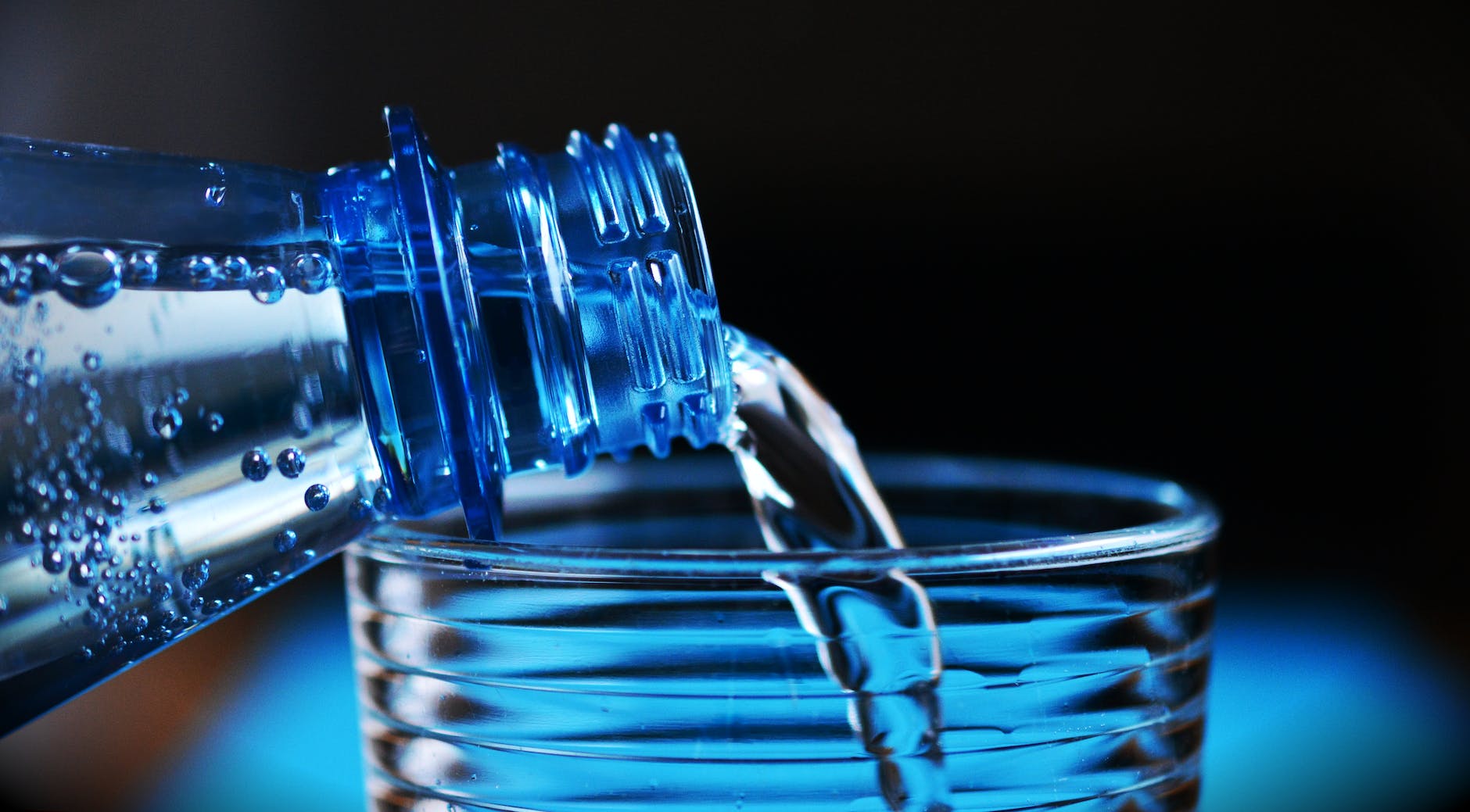
Comparing Different Brands of Bottled Water in The USA
Below is a comparison of different bottled water brands available in the USA, highlighting their unique mineral profiles and purification processes that can influence taste:
| Brand | Source | Mineral Profile | Purification Process | Taste Profile |
| Dasani | Purified Water | Low mineral content | Multiple filtration stages | Neutral and crisp with a clean taste |
| Fiji Water | Natural Artesian Water | Silica, calcium, and magnesium | Sourced from an underground aquifer | Smooth and refreshing with a hint of minerals |
| Evian | Natural Spring Water | Rich in calcium, magnesium, and bicarbonates | Naturally filtered through glacial rock | Crisp and light with a hint of minerals |
| Smartwater | Vapor Distilled Water | Low mineral content | Vapor distillation and electrolytes | Smooth and slightly electrolyte-infused |
| Acqua Panna | Natural Spring Water | Balanced mineral content | Naturally filtered through Tuscan rock | Smooth and balanced with a subtle mineral taste |
| Perrier | Sparkling Mineral Water | Rich in minerals, natural carbonation | Minimal processing to retain carbonation | Effervescent bubbles with a mineral-infused flavor |
| Icelandic Glacial | Natural Spring Water | Minerals from slow filtration process | Sourced from the Ölfus Spring | Pure and refreshing with a hint of sweetness |
| Essentia | Alkaline Water | Calcium, magnesium, and bicarbonates | Alkaline enhancement process | Smooth and slightly sweet due to raised pH level |
| VOSS | Artesian Water | Low mineral content | Sourced from an artesian well | Clean and pure with a refreshing taste |
| Mountain Valley | Spring Water | Balanced mineral content | Naturally filtered through rock | Crisp and refreshing with a hint of natural minerals |
Again, keep in mind that individual taste preferences can vary, so trying different bottled water brands can help you find the one that suits your palate the best. As always, consider the environmental impact of consuming bottled water and explore sustainable alternatives, such as filtered tap water or reusable water bottles, whenever possible.
Bottled Water vs. Tap Water
Comparing bottled water to tap water involves considering various factors, including taste, quality, filtration methods, additives, and regulations. Understanding these differences can help users make informed decisions about their water consumption preferences. Here’s a comparison:
| Aspect | Bottled Water | Tap Water |
| Taste | Neutral or clean taste | Can vary, may have chlorine or metallic taste |
| Quality | Regulated by FDA for safety and quality | Regulated by EPA under the Safe Drinking Water Act |
| Filtration Methods | Various methods (e.g., reverse osmosis, distillation, activated carbon) | Treated with coagulation, filtration, disinfection, and more |
| Additives | May have minerals or electrolytes for taste enhancement | Treated with disinfectants like chlorine for safety |
| Environmental Impact | Contributes to plastic waste and pollution | Reduces plastic waste and environmental impact |
| Cost | Can be more expensive, costs add up | Generally more cost-effective and accessible |
Both bottled water and tap water can be safe for consumption when sourced from reputable providers and properly treated. The choice between the two depends on your preference, access to safe tap water, environmental considerations, and budget constraints.
For users seeking alternatives to bottled water, tap water can be a viable option, and investing in a quality water filter can further enhance its taste and remove any potential contaminants.
What Are The Health Implications Of Drinking From Water Bottle That Tastes Weird
Drinking water that tastes weird from a bottle may not necessarily have immediate health implications, as the taste may be caused by harmless factors such as minerals.
However, if the water has an unusual or foul taste, it could be a sign of contamination or an issue with the bottle, and it is important to take precautions to avoid potential health risks.
Here are some possible health implications of drinking water from a bottle that tastes weird:
1. Exposure to contaminants: If the water has a strange taste, it may be contaminated with bacteria, viruses, or other harmful substances. Drinking contaminated water can cause a range of health problems, including gastrointestinal issues, diarrhea, and dehydration.
2. Exposure to chemicals: If the bottle is made from low-quality plastic, it may leach chemicals into the water. These chemicals can have negative health effects, such as disrupting the endocrine system, which can lead to hormone imbalances and other health problems.
3. Nutrient deficiencies: Depending on the mineral content of the water, drinking water with a strange taste may result in a lack of essential nutrients. For example, if the water is low in calcium, magnesium, or other minerals, drinking it regularly could lead to nutrient deficiencies over time.
4. Increased risk of disease: Drinking contaminated water can increase the risk of contracting waterborne diseases such as cholera, typhoid, and hepatitis A.
If you are experiencing a weird taste in your water bottle, it is best to stop drinking it until you can determine the cause of the taste.
How Do I Prevent My Water Bottle From Tasting Weird
To prevent your water bottle from tasting weird, you can take the following steps:
1. Clean Your Water Bottle Regularly
Bacteria, mold, and other contaminants can build up inside your water bottle over time, causing a strange taste. To prevent this, wash your water bottle regularly with soap and warm water, or run it through the dishwasher if it is dishwasher safe.
2. Use A High-Quality Water Bottle
Cheap, low-quality water bottles can be made from materials that leach chemicals or have a strange taste themselves. Invest in a high-quality water bottle made from a reputable material, such as stainless steel or glass, to avoid this problem.
3. Choose The Right Type Of Water
Different types of water can have different tastes, depending on their mineral content and filtration process. If you are sensitive to the taste of certain types of water, try different brands and types to find one that you like.
4. Store Your Water Properly
The way you store your water can also affect its taste. Store your water bottle in a cool, dry place away from direct sunlight, and avoid leaving it in a hot car or other warm environments. If you are using a plastic water bottle, make sure it is BPA-free to avoid chemical leaching.
5. Use A Water Filter
A water filter can remove impurities and contaminants from tap water, improving its taste and quality. Consider using a filter pitcher or a faucet-mounted filter to ensure that the water you are drinking is clean and free of any strange tastes or odors.
Why Does Spring Water Taste Weird (Why Does My Bottled Water Taste Weird?)
Spring water may taste weird for a few reasons:
- Natural minerals: Spring water can have a high mineral content, such as calcium, magnesium, and potassium, which can give it a distinct taste. Some people may find this taste unpleasant.
- Environmental factors: The taste of spring water can be affected by the environment in which the spring is located. For example, if the spring is near an agricultural area, it may have a taste of pesticides or other chemicals.
- Microorganisms: Spring water can also contain microorganisms that can affect its taste. Some of these microorganisms can produce unpleasant flavors or odors.
- Contamination: If the spring water is contaminated with bacteria, viruses, or other pollutants, it can have an unpleasant taste or odor. In this case, the water may not be safe to drink.
If you find that the spring water you are drinking has a weird taste, here are some steps you can take:
- Check for contamination: If the water tastes noticeably different than usual, it’s possible that it has been contaminated. You should stop drinking the water and have it tested to ensure it’s safe to drink.
- Try a different source: If you have access to multiple spring water sources, you may want to try a different one to see if the taste is different. This can help you determine if the taste is specific to that particular source or if it’s a general characteristic of spring water.
- Consider filtering: If you still want to drink spring water but don’t like the taste, you may want to consider using a filter to remove impurities or minerals. There are various types of filters available, such as activated carbon filters, reverse osmosis filters, or ceramic filters.
- Try other types of water: If you are unable to find a spring water source that you enjoy, you may want to try other types of water, such as tap water or bottled water. However, it’s important to note that not all types of water are created equal, and some may be contaminated or have additives that affect taste.
Why Does My Bottled Water Taste Like Chemicals (Why Does My Bottled Water Taste Weird?)
Assuming you’re referring to the slightly off-putting taste of some bottled waters, this is usually due to two things: the plastic the water is bottled in, and the purification process the water goes through.
Plastic can leach chemicals into the water, which is why some people prefer to drink out of glass or stainless bottles. And the purification process, while necessary to make the water safe to drink, can also remove some of the natural minerals that give water its taste.
If you’re concerned about the taste of your bottled water, you can try storing it in a different container, like a glass or stainless water bottle, or choosing a brand that uses a different purification process.
Water Tastes Like Plastic Dangerous (Why Does My Bottled Water Taste Weird?)
It’s no secret that water tastes like plastic. In fact, it’s one of the most common complaints about tap water. While there’s no need to panic, it is important to be wary of the potential dangers of drinking water that tastes like plastic.
There are a few reasons why water might taste like plastic. It could be due to the presence of chemicals like chlorine, which is used to disinfect water. It could also be due to the leaches from the plastics or other contaminants in the water.
While the plastic taste is usually harmless, there is a small chance that it could be harmful. If you’re concerned about the safety of your tap water, you can contact your local water utility to find out more.
Why Does Water Taste Weird All Of A Sudden (Why Does My Bottled Water Taste Weird?)
First of all, it could be that your water tastes weird because there’s something wrong with the water itself. If the water has been sitting in the pipes for a long time, it can pick up a metallic taste. Or if there’s been a recent change in the water source, the new water might have a different taste.
Another possibility is that something has changed in your own body. Maybe you’ve been sick and your sense of taste is off, or perhaps you’re pregnant and your hormones are affecting your sense of taste.
Whatever the reason, if your water suddenly tastes strange, there’s no need to worry. It is most likely nothing serious.
Related: Why Are There Bubbles In My Water Bottle
Why Does My Bottled Water Taste Bitter (Why Does My Bottled Water Taste Weird?)
The bitter taste in bottled water can have several causes, including:
- Presence of minerals: Some bottled waters have a higher mineral content than others, which can cause a bitter taste.
- Contaminants: Contaminants in the water, such as algae or bacteria, can cause a bitter taste.
- Plastic leaching: Some plastic bottles may leach chemicals into the water over time, which can cause a bitter taste.
- Exposure to light or heat: Exposure to light or heat can cause a chemical reaction in the water, which can cause a bitter taste.
To reduce or eliminate the bitter taste in bottled water, you can try the following:
- Try a different brand or type of bottled water with a lower mineral content.
- Use a water filter to remove any contaminants from the water.
- Choose a glass or stainless steel water bottle instead of plastic.
- Store the bottled water in a cool, dark place away from direct sunlight.
If the bitter taste persists or is accompanied by other symptoms, it’s best to consult a healthcare professional to rule out any underlying health issues.
Why Does My Metal Water Bottle Taste Weird (Why Does My Bottled Water Taste Weird?)
There are several reasons why your metal water bottle might have a strange taste. Here are some possible causes:
- Metal taste: If your water bottle is made of metal, it is possible that the material is imparting a metallic taste to the water. This can be especially noticeable if the bottle is made of aluminum or stainless steel. To reduce this taste, you can try cleaning the bottle thoroughly with soap and warm water or try switching to a different type of bottle material.
- Residue or buildup: Over time, residue or buildup from previous liquids or beverages can accumulate in the water bottle and cause an off taste. To fix this, try cleaning the bottle with warm, soapy water or a mixture of vinegar and water.
- Bacteria or mold growth: If your water bottle has not been cleaned properly, bacteria or mold can grow inside the bottle and cause an unpleasant taste. To fix this, thoroughly clean the bottle and allow it to dry completely before using it again.
- Chemical leaching: If your water bottle is made of plastic or another material that contains chemicals, such as BPA, these chemicals can leach into the water and cause a strange taste. To avoid this, choose a water bottle made of a safe, non-toxic material.
If you have tried cleaning your water bottle and the taste persists, it may be time to replace the bottle altogether.
Why Does Bottled Water Taste Like Plastic (Why Does My Bottled Water Taste Weird?)
Bottled water can sometimes taste like plastic due to a few reasons:
- Chemical leaching: The plastic used to make the water bottle can sometimes leach chemicals into the water, especially when the bottle is exposed to high temperatures or is stored for a long time. These chemicals can give the water a plastic-like taste.
- Poor quality plastic: Some water bottles are made with low-quality plastic, which can also result in a plastic-like taste.
- Sensory perception: It’s also possible that the plastic taste is just a perception, as the taste of the water can be influenced by the smell and taste of the plastic bottle itself.
If you find that your bottled water tastes like plastic, it may be best to switch to a different brand of bottled water or consider using a reusable water bottle made from a different material, such as glass or stainless steel.
Why Does My Water Bottle Taste Like Metal (Why Does My Bottled Water Taste Weird?)
If your water bottle has a metallic taste, it could be due to several reasons:
- Type of bottle: If your water bottle is made of metal, such as stainless steel, it can sometimes give your water a metallic taste, especially if it is a new bottle. This is because some metals can leach into the water, causing it to taste metallic. However, this usually goes away after a few uses.
- Storage conditions: If your water bottle has been stored in hot temperatures or exposed to sunlight, it can sometimes cause the plastic to break down and release chemicals into the water, giving it a metallic taste.
- Mineral content: Some bottled water brands have high mineral content, such as iron or copper, which can give the water a metallic taste.
- Previous contents: If your water bottle was previously used to hold other liquids, such as juice or coffee, it can sometimes leave a residual taste that can make your water taste metallic.
To prevent or eliminate a metallic taste in your water bottle, try the following:
- Choose the right type of bottle: If you are sensitive to the metallic taste, consider switching to a glass or BPA-free plastic water bottle.
- Store the bottle properly: Avoid storing your water bottle in hot temperatures or direct sunlight, as this can cause the plastic to break down and release chemicals into the water.
- Clean the bottle regularly: Regularly cleaning your water bottle with soap and water can help eliminate any residual tastes or odors.
- Use a filtration system: Consider using a water filtration system, such as a pitcher filter or faucet filter, to remove any minerals or chemicals that may be causing the metallic taste in your water.
By taking these steps, you can help ensure that your water tastes fresh and clean, without any unwanted metallic tastes or odors.
How To Remove Metallic Taste From Water Bottle (Why Does My Bottled Water Taste Weird?)
To remove the metallic taste from a water bottle, you can try the following:
- Clean the bottle: Sometimes, the metallic taste in a water bottle can be caused by residual bacteria or minerals. Cleaning the bottle with warm soapy water and a bottle brush can help remove any build-up that may be causing the taste.
- Rinse with vinegar: Another way to remove the metallic taste is by rinsing the bottle with a solution of equal parts water and vinegar. Let the solution sit in the bottle for a few minutes before rinsing thoroughly with water.
- Use baking soda: Another method is to fill the bottle with warm water and add a teaspoon of baking soda. Let the solution sit in the bottle for a few hours before rinsing thoroughly with water.
- Try lemon juice: Squeezing a fresh lemon into the water bottle can also help eliminate the metallic taste. Let the lemon juice sit in the bottle for a few minutes before rinsing thoroughly with water.
- Consider replacing the bottle: If the metallic taste persists even after cleaning and rinsing, it may be time to replace the water bottle.
It’s important to note that if the metallic taste is persistent and affecting your health, it’s best to consult a healthcare professional to rule out any underlying health issues.
The Bottom Line On Why Does My Bottled Water Taste Weird
Why Does My Bottled Water Taste Weird? Your bottled water may taste weird because of the chemicals in the plastic. These chemicals can leach into your water, making it taste strange. The best way to avoid this is to get a water bottle that is made of chemical-free materials.
